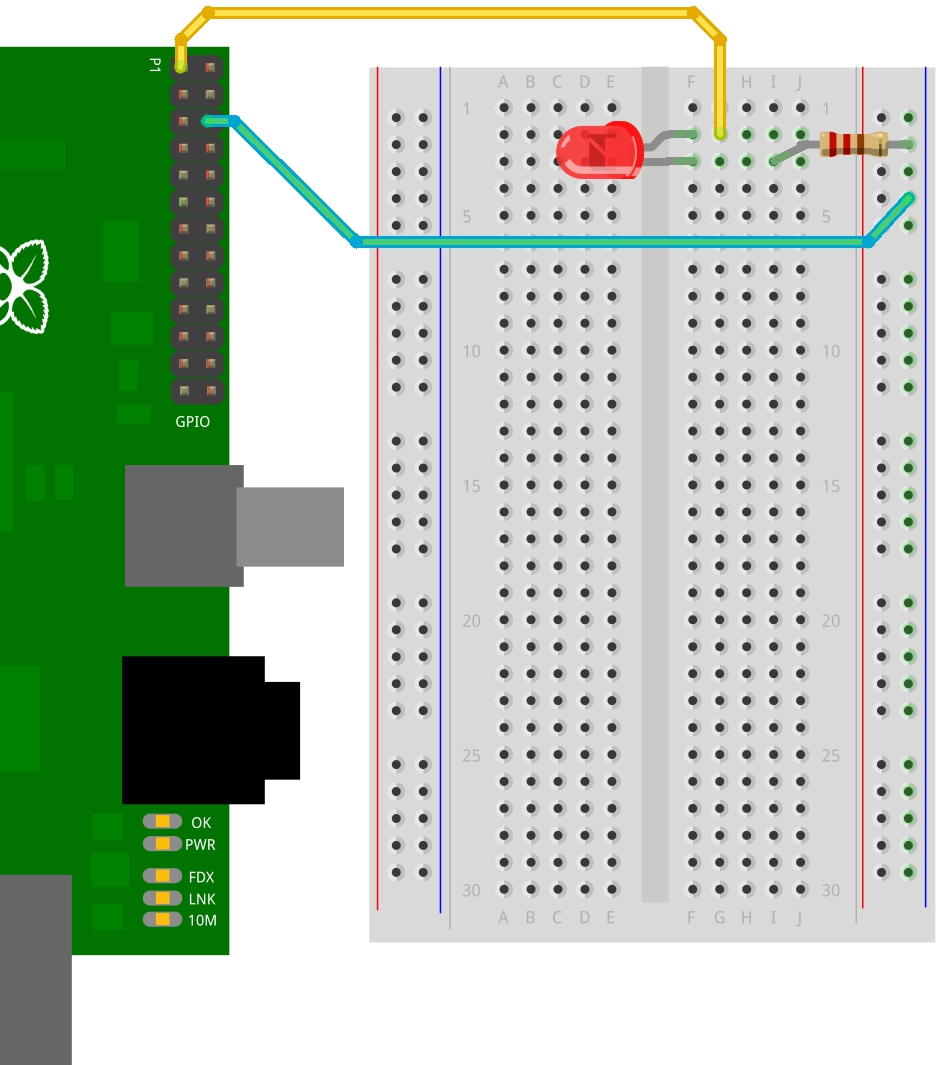Raspberry Pi Electronics
The Raspberry Pi provides a great platform for experimenting with basic electronic engineering and low-level computer programming. This sample project should give you a starting point for some of the interesting electronics projects that can be completed using the Raspberry Pi.
Note that all of equipment mentioned in this project is available to use in the DCS iLab.
The Pi-Face: Now the iLab has access to Pi-Faces, this tutorial can be completed more easily.
Example 1: Getting a LED to Light Up
The aim of this introductory project is to learn more about how the Raspberry Pi physically connects to other components, by lighting an LED using the Raspberry Pi's power source.
This example has been adapted from Drogon.Net, based on the equipment available in the DCS iLab. You can view the original project instructions here .
.
Step 1: Gathering the Hardware
Before we can do anything with the Raspberry Pi, we need to gather a few pieces of hardware:
- The Raspberry Pi
- A Raspberry Pi Power Supply
- A Breadboard
- 2 Wires
- A 270 Ohm Resistor
- An LED
Step 2: Connect the Components
Next, and before connecting the Raspberry Pi to its power supply, assemble the circuit using the following diagrams.
 |
 |
Step 3: Watching the LED Light Up
Once you have correctly assembled the circuit, plug the Raspberry Pi into its power supply. The LED should now light. If it doesn't, disconnect the power supply, reverse the LED, and try again.
Raspberry Pi News
iLab Workshops
The DCS Interaction Lab (iLab) is run every Wednesday from 4pm to 6pm in the CS0.01 lab.
Please come along and see some of the interesting ideas we have had for Raspberry Pi projects.
If you have your own project idea, come along to an iLab session and try it out!
There is free pizza and drinks!
Raspberry Pi Ideas?
The DCS iLab has 10 Raspberry Pi devices to experiment with, as well as Pi-Faces and Getboards.
The plan now is to start exploring some interesting projects using these devices.
Whether you have experience with the Raspberry Pi or not, we would love to hear your ideas. Please contact Andrew Sula (a dot sula at warwick dot ac dot uk) with any thoughts!
